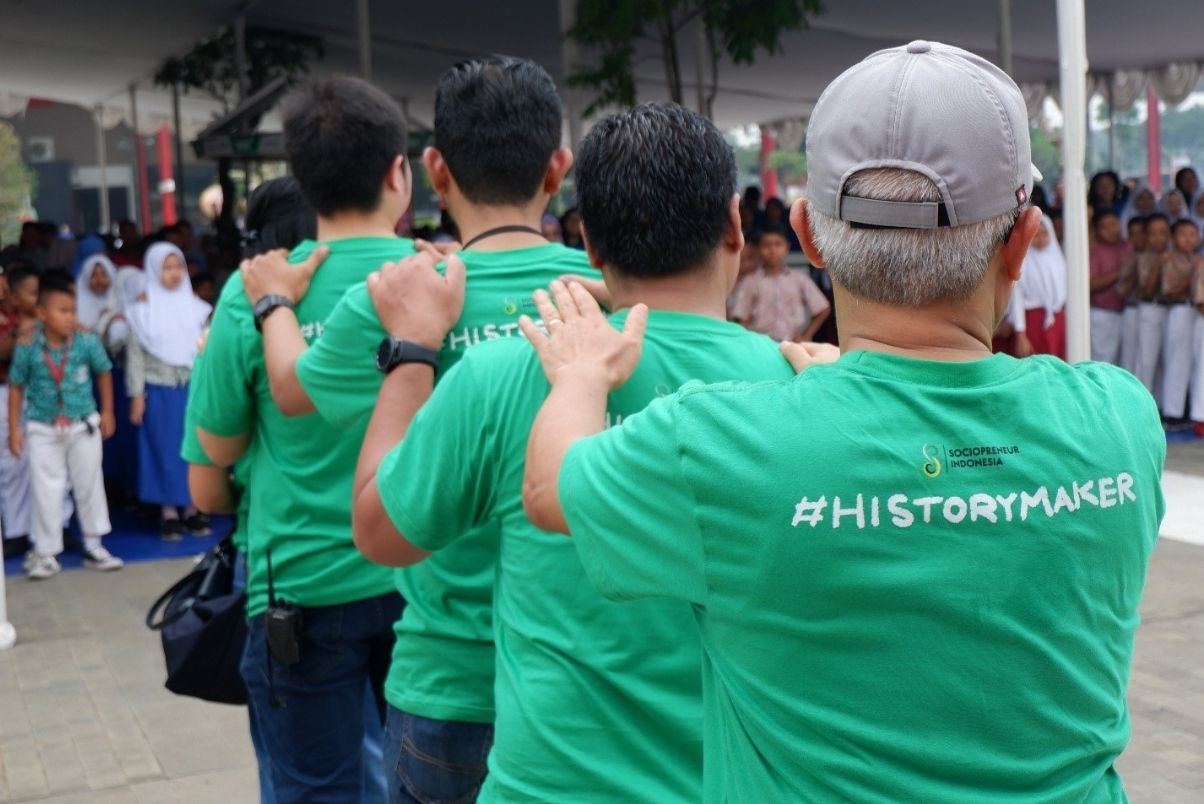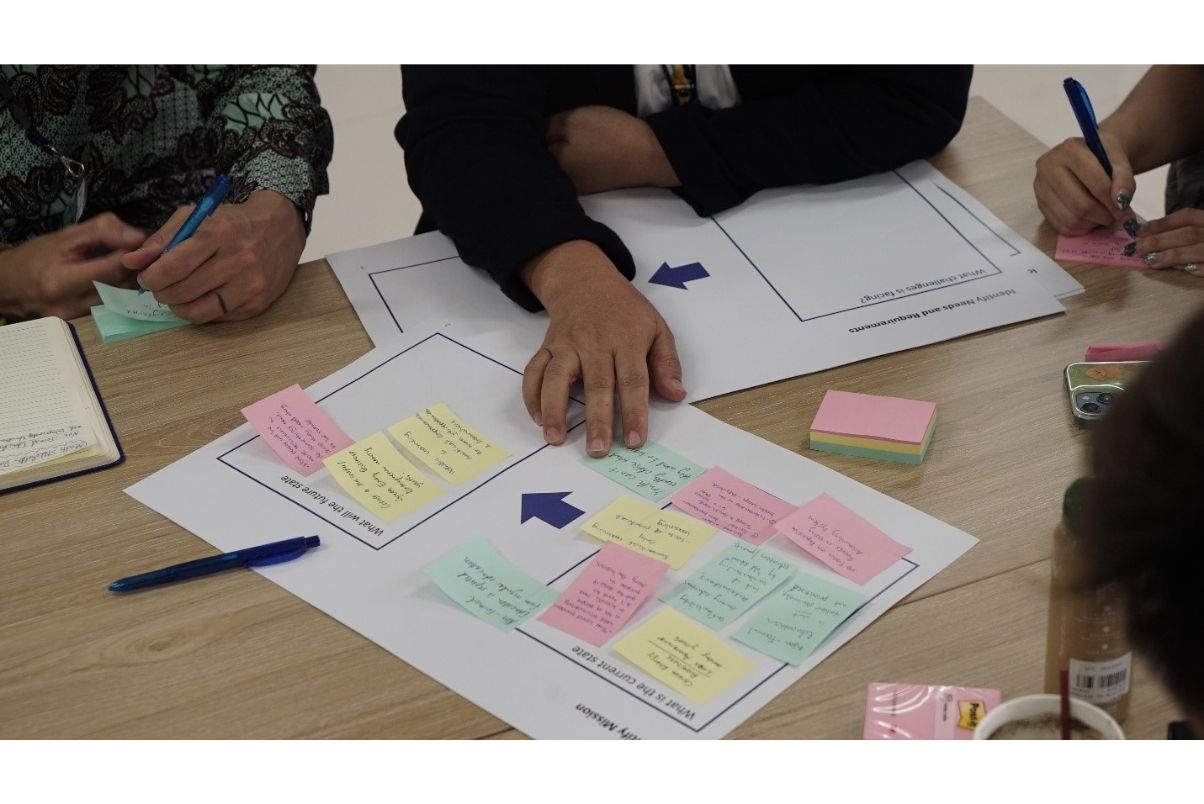
In a time marked by rapid transformation and global uncertainty, education must evolve to not only prepare learners for the future of work but also to empower them as agents of social change. For over two decades, I have been navigating this space—merging my background in engineering, aviation safety, and social impact—to create systems that cultivate responsibility, empathy, and innovation.
My journey led me to establish Sociopreneur Indonesia in 2013, a mission-driven social enterprise committed to advancing entrepreneurship education and social innovation. At the heart of this mission is the “Responsible Ecosystem” (RE), a transformative framework coined and developed by Sociopreneur Indonesia to nurture leaders with an entrepreneurial mindset and a strong sense of social responsibility. RE promotes a culture of empathy, innovation, and accountability by fostering collaboration across Academia, Business, Government, and Society (ABGS). Grounded in shared responsibility, it empowers individuals and institutions to collectively address complex societal and environmental challenges.

Engaging different stakeholders to be #HistoryMakers for their surroundings
Since its inception, the ripple effect of this ecosystem has reached over 2.8 million people and inspired the formation of a diverse pool of more than 4,000 volunteers from all levels of society—united by a shared commitment to building a better, more sustainable future.
RE made the numbers possible as rather than relying on a single actor, RE empowers all stakeholders, from educators and entrepreneurs to policymakers and communities, to co-create inclusive and sustainable solutions. The empowerment will encourage each stakeholder to take action to resolve challenges, sparking a ripple effect that inspires further collaboration and has a lasting impact.
The Responsible Ecosystem drives systemic change rooted in shared purpose and real-world relevance by integrating entrepreneurship education, social innovation, and local wisdom. It illustrates the impact made possible through the ACEEU standards culture, internal support structures, and service alignment.
Empathy as a Foundation for Innovation
Innovation without empathy risks becoming detached from the very communities it seeks to support. That’s why empathy and responsibility lie at the heart of all my design work. Initiatives such as the Empathy Project and the Festival of Social Creativity are designed to connect youth and professionals in collaborative efforts to address real societal challenges—ranging from municipal waste management to promoting sustainable living habits.
Empathy is embedded throughout every step of the process, enabling learners to deeply engage with real-world issues and respond with action through entrepreneurial approaches. Since 2013, these initiatives have reached over 40,000 learners and sparked more than 2,000 student-led social innovations.
Empowering Educators Through the Teachers' Training Program
To truly shift mindsets and scale sustainable impact, we begin with educators. The Teachers' Training Scholarship Program is specifically designed for teachers from rural, border, and remote areas of Indonesia. This program focuses on cultivating an entrepreneurial mindset, alongside essential digital and financial literacy skills needed in the 21st century.
By equipping educators with practical tools and a renewed sense of purpose, we empower them to become catalysts for change—not only within their classrooms but also across their schools and communities. The program fully implements the Responsible Ecosystem framework, enhancing teaching quality while promoting well-being and collaboration. These empowered educators become local leaders in entrepreneurship education and social innovation, driving change from the ground up.
Transforming Higher Education: Kampus Merdeka Mandiri
In 2022, I was honored to be appointed by the Ministry of Education, Culture, Research, and Technology of Indonesia to lead a national transformation initiative under the Kampus Merdeka Mandiri program. The objective was to empower higher education institutions to sustain the Kampus Merdeka model independently—reducing dependency on government funding while staying aligned with national development priorities.
Guided by the Responsible Ecosystem framework, we facilitated a systemic transformation across macro, meso, and micro levels. This approach emphasized shared responsibility, multi-stakeholder collaboration, and long-term sustainability. By 2024, we had successfully engaged 1,554 higher education institutions and collaborated with 8,975 stakeholders to implement 10,678 projects nationwide.
Remarkably, 96.78% of these projects directly addressed pressing national development challenges, including poverty reduction, stunting, digital inclusion, and rural development. Leveraging the RE model allowed for a decentralized, yet cohesive strategy where responsibilities were distributed among diverse actors—universities, government, private sector, and civil society—enabling all projects to operate without direct government funding.
This initiative was inspired by global models such as the entrepreneurial university and engaged university, but localized through the RE lens to prioritize entrepreneurship education and social innovation. It represents not only a structural shift in how higher education engages with societal needs, but also a cultural transformation—one that empowers institutions to lead development agendas grounded in responsibility, innovation, and impact.
Collaborative Ecosystems and Global Recognition
Sustainable innovation cannot happen in isolation. That's why my focus is on building collaborative ecosystems involving diverse stakeholders. The establishment of partnerships with local governments, schools, universities, and international organizations enables us to scale impact while remaining responsive to local needs.

Turning multi-stakeholder dialogue into real action to resolve challenges
Looking Ahead
Our next steps focus on expanding the reach and deepening the impact of our initiatives through platforms such as the Global Entrepreneurship and Empathy Meeting (GEEM). GEEM serves as a catalytic space for sharing best practices, fostering cross-sector collaboration, and amplifying voices from diverse ecosystems.
Anchored in the Responsible Ecosystem framework, we will continue to empower learners, educators, and institutions to move from awareness to action—driven by purpose and shared accountability. We envision a future where entrepreneurship education goes beyond skill-building to cultivate a deep sense of responsibility toward people, planet, and prosperity. Through RE, each stakeholder becomes an active contributor in shaping sustainable, inclusive, and resilient futures.
The Responsible Ecosystem model proves that when education is grounded in empathy and innovation, it becomes a transformative force. Higher Education Institutions have the capacity and responsibility to be drivers and enablers of systemic change in their region and beyond, showcased in the initiatives above through the standards of culture, internal support structures, and service alignment.
My mission remains clear: to nurture changemakers who lead with compassion, act with integrity, and build solutions that have a lasting impact far beyond their immediate context.
.

.
Images courtesy of the author.